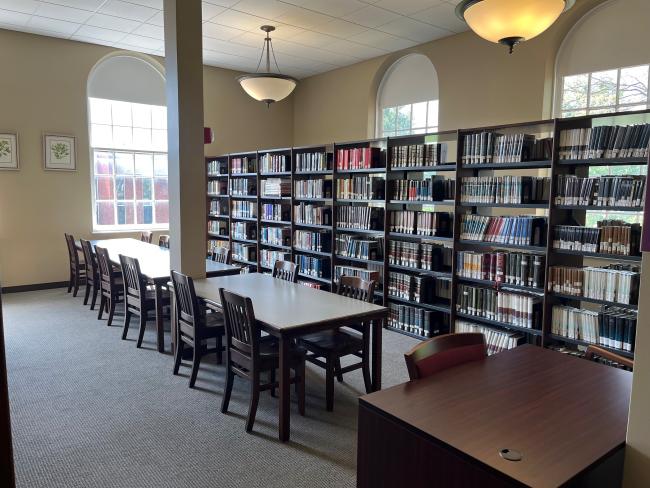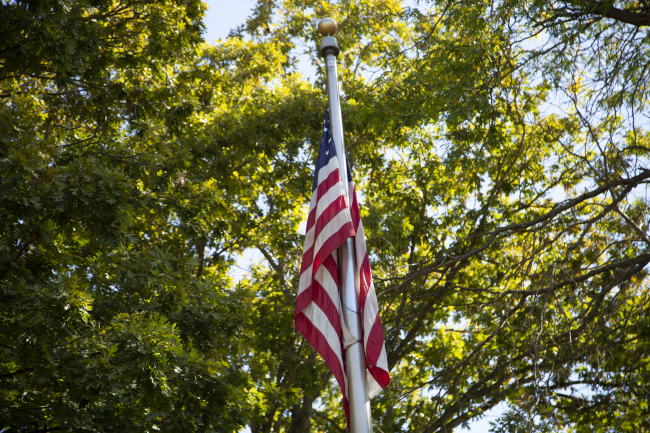The countdown on New Year’s Eve is traditionally full of the promise of better things to come, but 2020’s New Year’s Eve was fraught with hopes for health and peace. As the ball dropped, our prayers floated up. Last year brought us so many challenges that the 2020 bingo card became a favorite meme on social media. We shook our heads regularly at daily events as we wondered how we would surmount the obstacles consistently thrown in front of us.
But here we are.
Through faith and perseverance, we made it through that tumultuous year. While 2021 brings new solutions for health and peace, this year has already shown its close ties to 2020. Instead of resolutions and vision boards, it is time to take stock of our resources as we face another challenging year. The following list is our stockpile that will support and guide us in 2021.
1. Faith in the power of good.
“The light shines in the darkness, and the darkness has not overcome it” (John 1:5).
Even when days are the darkest, we know that the light still exists. Our culture is built on light winning out over darkness, and we must keep that truth in our hearts.
2. Trust in science.
“Wear a mask” (Dr. Anthony Fauci, Director of the National Institute of Allergy and Infectious Diseases, 2020).
While 2020 brought us the Covid-19 pandemic, it also brought us the miracle of a vaccine. Science came to our rescue in the form of teaching us how masks, social distancing, and handwashing could keep us safe, and now it brings us the promise of health through a vaccine.
3. Cultivate truth.
“Today’s news consumer has to do a lot more detective work in order to ensure one’s self you’re being informed by legitimate news and information sources” (Phil Napoli, Professor of Public Policy at Duke University, 2020).
According to a study conducted by researchers at the University of California, San-Diego, “The human brain is loaded daily with 34 GB of information” (Tech Century 21,2020). Of course, that massive bulk of information hasn’t been vetted as accurate before it enters our brain, so we need to rely on our own superpower of critical thinking to eliminate the false narratives. Check mediabias.org to check the reliability of sources and snopes.com to check on conspiracy theories and rumors. Learn to read laterally (open new tabs to research ideas as they appear).
4. Reliance on the kindness of strangers.
“When I was a boy and I would see scary things in the news, my mother would say to me ‘Look for the helpers. You will always find people who are helping’” (Fred Rogers, Mr. Rogers).
We certainly have seen the evidence of angel helpers en masse in 2020. The frontline workers have saved us in so many ways—in tending to our pandemic patients, in holding their hands when their loved ones couldn’t be there, in transporting them to the hospital, in shopping for those at risk, in helping the rest of us to continue to live safely. These are the helpers. This is the light emerging from the darkness, and we need to remember that this compassionate action exists even in the darkest of times.
5. Slowing down.
“It took a virus to slow us down,” (Erin O’Connor, The Washington Post, 2020).
A blessing wrapped in chaos and fear was the fact that most of us were forced to slow down. Commute time changed from an hour to the walk down the stairs to a home office. We stayed home, and in those extra found moments, we read, we played games, we talked, we binged series, and we contemplated. Can we keep some of this practice in 2021? One of the questions 2020 forced us to consider is what choices we can make about how we spend our time. In 2021, how will we make use of this newfound information?
6. Following the path of strength and commitment.
“What I try to tell young people is that if you come together with a mission, and it’s grounded with love and a sense of community, you can make the impossible possible” (John Lewis, 1940-2020).
The list of those who made the list of who made the impossible possible is long (and woefully incomplete here): Martin Luther King, John F. Kennedy, Rosa Parks, Ruth Bader Ginsberg, Cesar Chavez, Sojourner Truth, Harriet Tubman, John Lewis, Annie Lee Cooper, Harvey Milk, Gavin Newsome, Audre Lord, George Takei, Susan B. Anthony, Elizabeth Cady Stanton, Ida B. Wells, Sharice Davids, Deb Haaland, Orloff Miller, Clark Olsen, James Reeb, the Freedom Riders, the abolitionists, the Stonewall patrons, those who have used their voices for good, and every other person who has brought light into the darkness. We have our template for perseverance and our blueprint for commitment to good, our pathway to make the impossible possible.
Here’s to 2021.
Click here to learn more about the Writing Center at Waynesburg University


